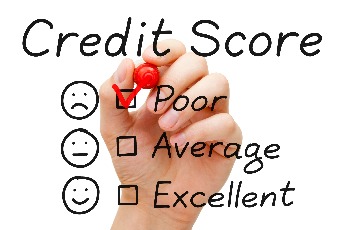What Affects Your Credit Score the Most?

You probably already know about the connection between your credit history and your credit report and how both impact your credit score. Remember that your credit score is like the grade on your credit report: companies use this number to rate your likelihood that you’ll repay your debts and pay your bills.
But just what are the factors that go into calculating your credit score? And which ones impact your score the most?
Here’s the breakdown of what affects your credit score, from the highest impact to the least:
Your payment history (35%): Thirty-five percent of your credit score is your payment history, like whether you pay your bills on time and if you always pay at least the minimum amount. Even one late payment can impact your credit history.
The amounts you owe (30%): Thirty percent of your credit score is determined by the amounts you owe, which is made up of two parts: the total amount of money you owe all your lenders and the percentage of available credit that you’re using (like hitting the limit on your credit card). People who are using less of their available credit are considered lower risk than people who are using a lot.
The length of your credit history (15%): The amount of time you’ve been using credit makes up fifteen percent of your credit score. Someone who has been using credit for a long time is considered less of a risk.
New credit you open or try to open (10%): About ten percent of your credit score is based on the amount of new credit you’ve applied for recently. Every time you apply for a loan, credit cards, store cards and even a cell phone, someone will run your credit. Someone who applies for a lot of credit in a short amount of time is seen as a credit risk.
Types of credit (10%): The types of credit you have impact about ten percent of your credit score. People with a mix of credit types, like credit cards, an auto loan, and a mortgage may have a slightly higher score than those with only one type.
So now you know what makes up your credit score, which is your overall “credit grade.” Your credit report, on the other hand, gives you all the details about each account and shows you everything from how much money you owe, how many accounts you have, how many accounts are in good or bad standing, and how many times a lender or another company has checked on your credit history. Since your payment history makes up 35 percent of your credit score, you’ll want to pay attention to two places on your credit report: potentially negative items (accounts unpaid or past due) and your status and payment history.
Even if you do have a few negative marks on your credit report, the good news is that on-time and regular payments can help boost your credit score. It may take a little time and patience, but paying your bills consistently can help boost your credit.
Posted by: Carlson Mortgage – a St. Louis mortgage broker. Our Home Loan Experts can be reached at (314) 329-7314 seven days a week. Let us be your source for some of the lowest mortgage interest rates in St. Louis on conventional, FHA, Veterans (VA), USDA, Jumbo and HARP 1.0 and 2.0 loans. We have 10 years of experience providing mortgage services in St. Louis that are tailored individually to your unique needs and to your financial situation. We speak English, Spanish and Russian. Call us today to inquire about interest rates or if you have any mortgage questions.
Read the original article here
Share Your Thoughts!